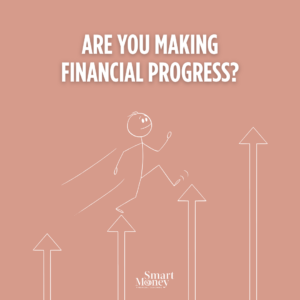Have you ever reached into your fridge at night to get a sweet treat, and just as you are biting down you think– “I am not even hungry. Why am I eating this?”
It is generally a quiet voice, but clear nonetheless.
This voice can give us a bit of clarity in moments when we are falling prey to temptation with food, alcohol, smoking, gambling and even spending money.
While you can live a full life free of alcohol, smoking or gambling–the same is not true for eating or spending money!
As you know, we must purchase groceries, household items, pay bills and buy what we need to sustain our lives. So if you have a history of overspending, it can be tricky to learn new behaviors that are consistent with your family’s goals and priorities.
What is Overspending?
The most basic way for me to define it is–spending money to feel better.
If you’ve ever heard the words “Retail Therapy,” well there is a bit of truth to it! Who doesn’t get excited to buy a new sweater, a gift for a loved one, or even a few new plants?! While none of those are negative, some of my clients use shopping as a coping mechanism, and I can tell you that it leads to more pain and problems.
In the past, you would need to physically go out to a mall or department store to go shopping. But now with Amazon along with all the other online retailers, it is easier than ever to deny your negative feelings with a bit of shopping.
After having worked with many families over the years, I can say that overspending can show up in big and small ways in your finances. So today I want to share some tips to help you navigate the urge to overspend.
1. Create a working budget for your family each month.
Just like a pilot would not leave the air strip without a flight plan, your family needs a written budget each month. This is your time to take charge of your money and plan for your priorities. This is the guide we are going to lean on throughout the month when temptation arises.
2. If you are questioning a purchase…wait!
There are very few purchases that must be made immediately. So if you are hesitating about a purchase, give yourself a day or two to think it over and see if a bit of time gives you some clarity.
3. Get clear on your motivation for the spending.
If you are not sure about a purchase, ask yourself if you are spending from an impulse or because you had intended to spend your money that way. Be aware that spending can be a distraction from a negative emotion. Sometimes, you will get the nudge that it is the right move, and others, you will see that it is similar to reaching for a sweet treat in the fridge!
4. If you are consistently overspending, get accountability.
Overspending gets worse when it is in secret. The best thing you can do is to share your goals with a trusted friend or a financial coach, and get some accountability. Oftentimes an accountability partner can mean the difference between failure and success.
I bring this up especially in December because spending tends to be quite a bit higher this month for the holidays, and sometimes clients get a lot of momentum with shopping! If you add in some late night scrolling with the Facebook and Instagram algorithm serving you ads that are hard to resist–it can be a recipe for overspending!
Cheering you on this holiday season!








